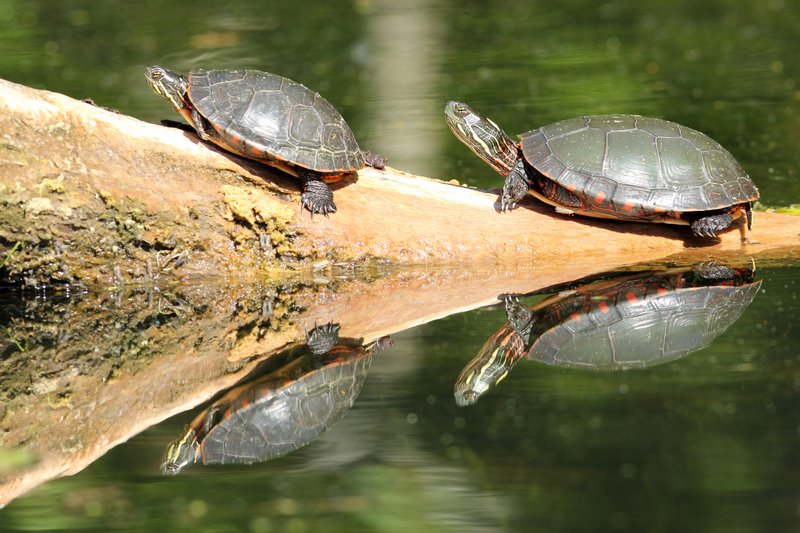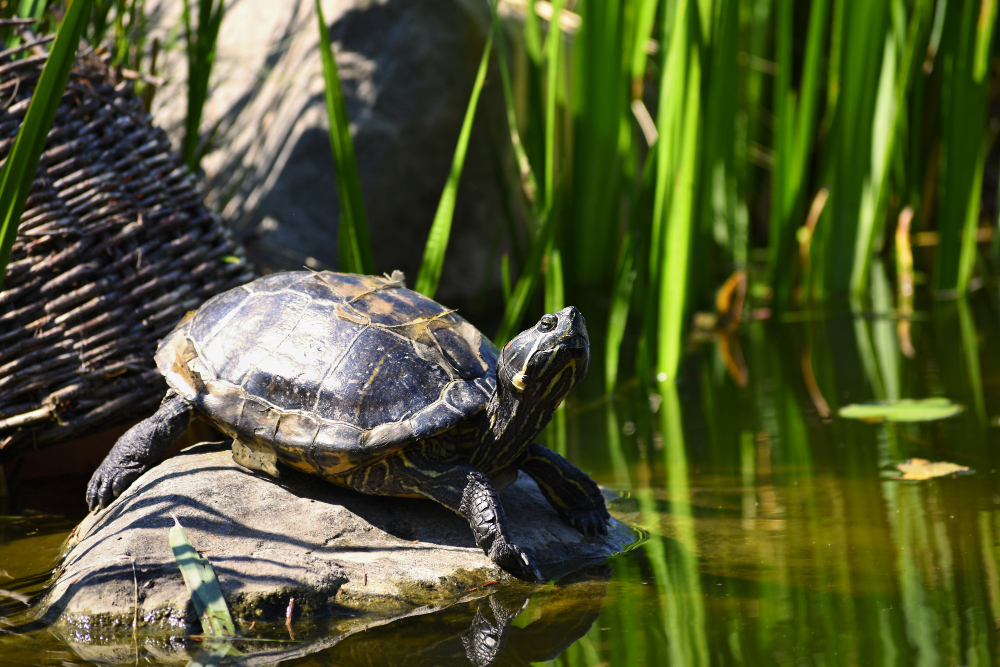When considering the addition of turtles to a pond, many pond owners wonder whether these reptiles are beneficial or harmful to the pond ecosystem. Turtles can be fascinating creatures to observe and can even help maintain the balance of a pond when managed properly. However, there are potential drawbacks to having turtles in a pond that pond owners should be aware of.
Benefits of Having Turtles in a Pond
Turtles can contribute positively to the pond ecosystem in various ways. Here are some of the benefits of having turtles in a pond:
- Natural Pest Control: Turtles feed on insects, algae, and other small creatures that can overpopulate a pond. By consuming these organisms, turtles help keep the pond’s ecosystem in balance.
- Scavengers: Turtles are natural scavengers and can help clean up decaying organic matter in the pond, such as fallen leaves or dead fish. This can prevent the accumulation of debris and help maintain water quality.
- Biodiversity: Adding turtles to a pond can increase the overall biodiversity of the ecosystem. Turtles coexisting with fish and plants can create a more diverse and dynamic environment.
Drawbacks of Having Turtles in a Pond
While turtles can offer several benefits to a pond, there are also potential drawbacks to consider:
- Overpopulation: Turtles can reproduce rapidly, leading to overpopulation in a pond. This can strain the pond’s resources and disrupt the natural balance of the ecosystem.
- Destruction of Aquatic Plants: Some turtle species are known to feed on aquatic plants, which can damage the vegetation in the pond. This can impact the overall health of the pond and its inhabitants.
- Compete with Fish: Turtles may compete with fish for food and resources in the pond. This competition can lead to stress among the pond’s inhabitants and affect the overall ecosystem.

Credit: extension.msstate.edu
Managing Turtles in a Pond
To ensure that turtles have a positive impact on a pond, it is essential to manage their population and behavior. Here are some tips for managing turtles in a pond:
- Monitor Population: Keep an eye on the turtle population in the pond and ensure that it remains at a sustainable level. If the turtle population grows too large, consider relocating some turtles to other suitable habitats. Depending on the species benefits and harmfulness can happen, anyway, in our previous article we told you are snapping turtles bad for the pond or not then check our previous article.
- Provide Hiding Places: Create hiding places in the pond for turtles to retreat to when they feel threatened. This can help reduce stress and aggression among turtles and other pond inhabitants.
- Feeding Stations: To prevent turtles from consuming too many fish or aquatic plants, consider setting up feeding stations specifically for the turtles. This can help control their diet and minimize competition with other pond inhabitants.

Credit: www.solitudelakemanagement.com
Frequently Asked Questions
Q: Are turtles bad for a pond?
A: Generally, turtles are not bad for a pond and can be beneficial for the ecosystem by controlling insect populations and maintaining balance.
Q: What types of turtles are commonly found in ponds?
A: Common pond turtles include painted turtles, snapping turtles, and red-eared sliders.
Q: Do turtles harm fish populations in a pond?
A: While some turtles may eat small fish, they typically do not significantly impact fish populations in a well-balanced pond.
Q: Can turtles cause damage to pond plants?
A: Turtles may eat or uproot some aquatic plants, but they usually do not cause significant damage if plant populations are healthy and diverse.
Q: How can I manage turtle populations in my pond?
A: Managing turtle populations can involve habitat modification, providing hiding spots for fish, and occasionally relocating turtles if they become too numerous.
Q: Are there any benefits to having turtles in a pond?
A: Yes, turtles can help control insect populations, contribute to nutrient cycling, and provide educational and aesthetic value.
Q: Do turtles carry diseases that can affect a pond ecosystem?
A: Turtles can carry diseases such as salmonella, but these are typically not a significant threat to a well-maintained pond ecosystem.
Q: Will turtles affect the water quality of my pond?
A: Turtles generally do not negatively affect water quality, but maintaining proper filtration and regular pond maintenance is important.
Q: How can I attract turtles to my pond?
A: Providing basking areas, such as logs or rocks, and maintaining a healthy, natural pond environment can attract turtles.
Q: What should I do if turtles overpopulate my pond?
A: If turtles overpopulate, consider consulting a wildlife expert for advice on humane relocation or habitat management.
Final Words
In conclusion, turtles can have both positive and negative effects on a pond ecosystem. While they offer benefits such as natural pest control and biodiversity, they can also pose challenges such as overpopulation and plant destruction. By managing the turtle population and behavior effectively, pond owners can enjoy the presence of turtles in their ponds while maintaining a healthy and balanced ecosystem.





